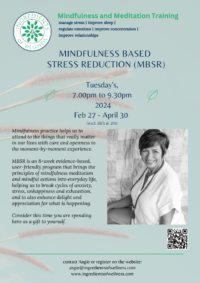Some pesticides with your produce?
The Environmental Working Group’s (EWG) annual Shoppers Guide to Pesticides in Produce was released earlier this month revealing yet again that some of our favorite fruits and most used vegetables are drowning in pesticides.

The saddest bit of news has to be that strawberries ARE the dirtiest of the 50 fruits and vegetables tested. Why sad? Aside from their high nutritional profile (“an exceptional source of antioxidants”), and that children love them; in Hong Kong we have little choice when it comes to strawberries, with US grown being the most abundantly available year round. Organically grown are often hard to come by and when available they are excessively expensive compared to the non-organic variety.
The EWG analysis found over 60 different pesticides are used in various combinations by strawberry growers, adding, “what’s worse, strawberry growers use jaw-dropping volumes of poisonous gases – some developed for chemical warfare but now banned by the Geneva Conventions – to sterilize their fields before planting, killing every pest, weed and other living thing in the soil.”
Although US grown strawberries are most common here in Hong Kong, at this time of year we also see Korean strawberries on the supermarket shelves and at wet markets. I have a habit of smelling fruit as a test for ripeness and sweetness. I’ve found this essential over the years because, as most fruit is imported it is likely to have been picked and stored long before we are able to purchase it. When I smell the Korean strawberries I often smell something entirely different, a gaseous smell….so perhaps growers in Korea are also using these poisonous gases!
But let’s talk about the good news first.
Clean 15
The Clean 15 list includes produce with the lowest levels of pesticides. The EWG suggests that you can buy conventionally grown from this list when you can’t afford organic, or if organic is not available. The report confirms safety stating, “you can feel confident that conventionally grown fruits and veggies on the Clean Fifteen list have very little pesticide contamination.”

The list is the same as 2015 with the exception of sweet potatoes which have moved down one place.
I’m pleased to see asparagus on the clean list. For years I have been choosing the non-organic variety from Thailand as they are usually about 20% cheaper than the organic variety, and the food miles are far less than asparagus from the US or Europe.
Not surprisingly avocado tops the Clean 15 list. There tends to be less concern of pesticide exposure for fruit with an inedible thick outer skin.
However, there is one item of concern on this Clean 15 list – papaya. It is believed that most papaya plants in Hong Kong are derived from genetically modified (GM) seeds. In 2015 the Centre for Food Saftey reported that GM papaya is not uncommon in Hong Kong and has been found in local and imported varieties. The EWG report also found that most Hawaiian papaya was GM.
Now the bad news!
Dirty Dozen

Here are some of the key finding:
- More than 98% of strawberry samples tested positive for at least one pesticide as well as peaches, nectarines, and apples
- Some 40% had residues of 10 or more pesticides.
- One sample of strawberries had 17 different pesticides….more toxic chemicals than essential nutrients I would guess!
You should choose organic when buying any produce on the dirty dozen list (and some others further down the full list), wherever you live. Since we import most of our produce it is likely that some of this dirty dozen produce comes from the US. Even if you do find brands from elsewhere it is probable that farmers in the country of origin are using the same pesticides.
The best choice for your health and the environment is to go organic and if you’d like to do more, consider buying locally grown organic.
Plastic Pollution
Talking about the environment!
Organic produce is my first choice and fortunately we now have access to high quality and highly nutritious locally grown organic options. But fruit is still hard to come by and we often need to turn to the supermarket shelves to find organic fruit. However, this is now causing a frustrating dilemma – plastic packaging.

The message to store managers continues to be that customers who purchase organic produce are also the same customers who are appalled by the excessive and unnecessary packaging. Organic apples, avocado’s and various other fruits are put on a plastic tray and wrapped in plastic wrap. This is totally unnecessary when each item has a separate sticker to distinguish the organic from the non-organic variety…the check-out ladies are smart, they can tell the difference! (If you too are appalled at this please express your disappointment with the store manager).
Back to the list!
Leafy Greens
The EWG have again included leafy greens and hot peppers in their analysis. Leafy greens in the form of kale and collard greens came in at 18 of 50 at the dirty end of the scale. To avoid pesticide exposure buy organic varieties of all leafy greens as well as spinach, where possible.
What else can you do?
Wash everything, even if it’s organic.
For soft produce like strawberries and grapes rub them gently and soak for as long as is reasonable… you still want taste the fruit.
For harder produce use a vegetable scrubber.
Apples, carrots and other fruits and vegetables that kids eat a lot of, consider peeling in additional to washing, if organic is not an option.
Vegetable washes are effective but so is a bit of vinegar in the soaking water.
Be well and eat healthy.



